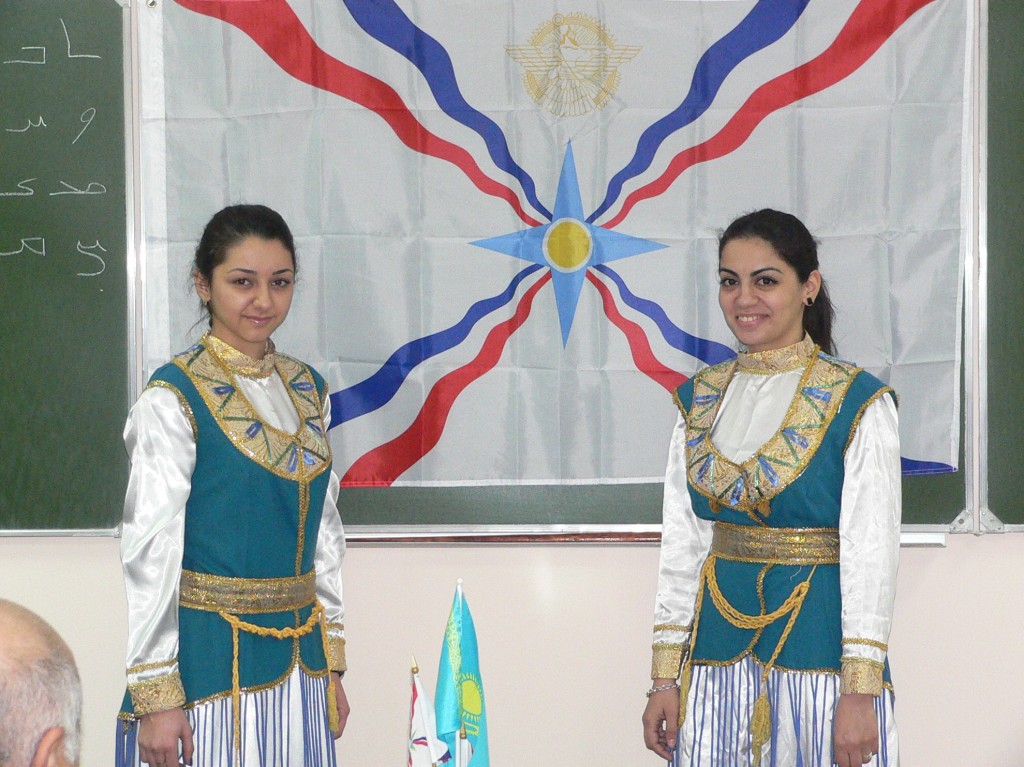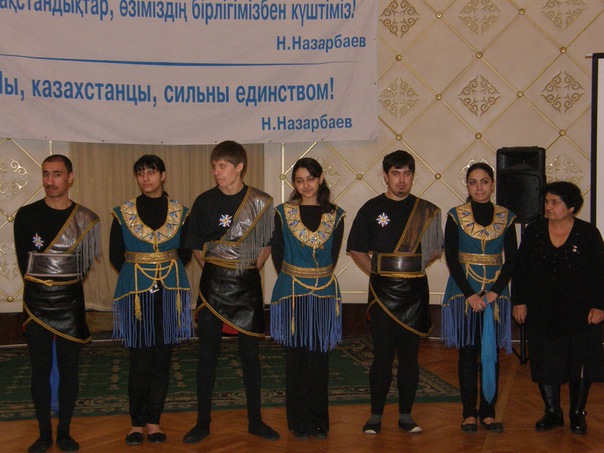ASTANA – Among the numerous nationalities that live in Kazakhstan, there is a very small community that has lived through some of history’s darkest times to preserve their language and cultural heritage. Today, there are only about 350 of them left in the country. Their origins lie in historical Mesopotamia, the birthplace of the ancient civilisation that evolved into the world we know today.
In an exclusive interview with The Astana Times, 76-year-old Nelly Bit-Suleiman, deputy chairwoman of the Assyrian Cultural Centre in Almaty, shared just a glimpse of the incredible story that made a once-mighty nation disperse throughout the world in search of a refuge – a refuge that Kazakhstan offered willingly in times of great challenges.
“[Assyrians] have been living in Kazakhstan since 1950.Our homeland was on the territory of modern Iraq. The whole area of the Tigris and Euphrates river banks was populated by Assyrians,” Bit-Suleiman said.
Today, that ancient territory has become part of several countries: northern Iraq, southeast Turkey and northeast Syria.
“But my ancestors were forced to flee to what is today the territory of Iran because of their religion, as they were orthodox. Then, in 1915, my grandfather and my parents fled Iran to the Russian Empire for the same reason. At the time, Russia gave them shelter. And until 1950, we lived in Tbilisi, Georgia. In 1950, our family was deported to Kazakhstan by a decree of Josef Stalin.”
 According to Bit-Suleiman, because the Assyrian community is so small and most of them are relatives, Assyrians have to marry outside their own ethnicity.
According to Bit-Suleiman, because the Assyrian community is so small and most of them are relatives, Assyrians have to marry outside their own ethnicity.
Without the possibility of visiting their historical homeland, “Assyrians in Kazakhstan made their priority higher education,” Bit-Suleiman said. Most Assyrians in Kazakhstan have a higher education today and are successful businessmen and hard-working people, she said.
“Because I was born in Georgia, I never had the burning feeling to visit my historical homeland. I consider Georgia my homeland,” Bit-Suleiman explained.
“But we have been living in Kazakhstan for such a long time; we have been accepted well in [these] lands since 1950. We first settled in Shelek (Almaty Oblast). We had our own farm and grew crops, vegetables, fruits, pretty much everything.”
Assyrians still live on the territory of Iraq and Syria, but are being persecuted for their religion, she explained. There are over 300,000 Assyrians living in Iraq and 400,000 in Syria, the largest populations of Assyrians in the world. More than 100,000 live in Jordan, Sweden and the United States, with the smallest populations in Kazakhstan and Finland: between 300-350 people. The Assyrians across the Soviet Union were deported under Stalin’s decree in 1950.
“I remember [the day of deportation clearly]. It was February 14, at 2 a.m. A truck pulled over near our house. I was little and don’t remember much and I was sick that night with fever. Four or five men in military uniform came for us. We had only two hours to pick up our things,” recalled Bit-Suleiman.
“Then they delivered us to a railway station and forced us all into the cattle cars. It took 17 days to get from Tbilisi to Kazakhstan; 17 days, starting from February 14,” she repeated.
 Assyrians, as a population, have witnessed the Arab conquest (seventh century), Mongolian and Turkic rule after the fall of Baghdad (13th century), Ottoman rule (16th century) and the hardship of World War I, when about 300,000 Assyrians, some two-thirds of the entire population, were estimated to have been killed by the army of the Ottoman empire.
Assyrians, as a population, have witnessed the Arab conquest (seventh century), Mongolian and Turkic rule after the fall of Baghdad (13th century), Ottoman rule (16th century) and the hardship of World War I, when about 300,000 Assyrians, some two-thirds of the entire population, were estimated to have been killed by the army of the Ottoman empire.
“When we were delivered to Shelek, at first there was nowhere to live, and the local population came to help by offering their homes,” Bit-Suleiman said. But locals couldn’t accommodate all of us, there were too many of us, so our family didn’t get lucky and we had to live in a sort of a night club, as we didn’t have a choice. We had been living there in the dressing rooms for one year. The people from a collective farm helped us with some rice and eggs and meat. We couldn’t move anywhere from Shelek as were watched by the state’s authorities; we were on parole. My sister once travelled outside the collective farm and was jailed for five days for violating her parole. After these hard times, our lives slowly became easier and easier and in 1956, we were relieved of parole and could then move to Almaty.”
The Assyrian centre in Kazakhstan was established in 1991 in Almaty. The centre participates in the Assembly of the People of Kazakhstan, portraying their cultural values and sharing their moving history with others in Kazakhstan. The centre also employs Assyrian language teachers and a dancing club, in an effort to retain their identity and pass it on to the next generation, so their long history can continue.

